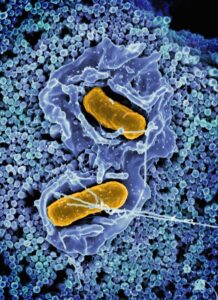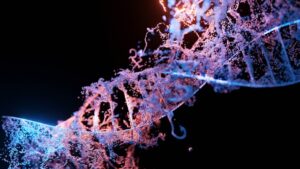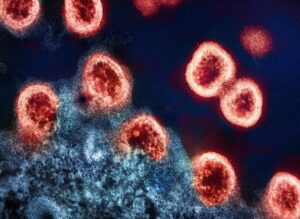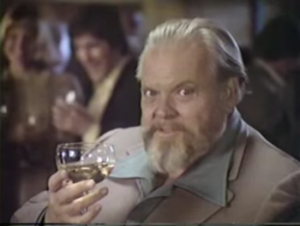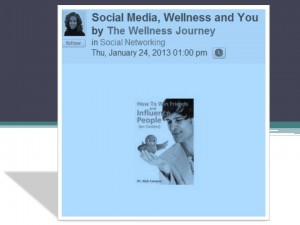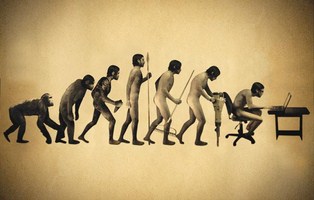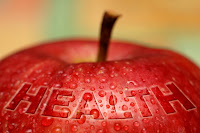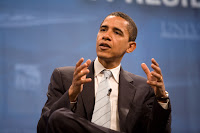 By gaining a deeper understanding of the evolutionary process that governs all life and by acknowledging the inevitability—and, perhaps even more importantly, the necessity — of death, it will be easier for us to develop an appreciation for new and more valuable ways to approach our health.
By gaining a deeper understanding of the evolutionary process that governs all life and by acknowledging the inevitability—and, perhaps even more importantly, the necessity — of death, it will be easier for us to develop an appreciation for new and more valuable ways to approach our health.
The prevailing view among modern and, of course, predominantly Western societies is that health is but a fleeting asset. We believe that health depends heavily on genetics, socioeconomic status, and the quality of medical care. However, there is much more to the story than that.
It has been my goal to expose the many weaknesses inherent in the current yet outdated health paradigm. Our existing views have, without a doubt, been useful; but now is the time to move forward—to progress or, shall we say, evolve to the next level of understanding. It is no longer adequate for us to wait and fall ill before we invest time and attention in our health. That is the old way.
Defining Wellness
The new paradigm for health is that of a life of wellness. This concept is much broader than what we use today and definitely serves us more completely and in a more fulfilling way. Wellness is not just about feeling well physically, but also about doing well—in mind, in body, and in spirit.
We can also experience wellness beyond our individual selves, like socially or economically. We can also experience it collectively with our family or our community. It can extend to our relationship with the environment or with the various ecosystems around us. It can even extend to the entire planet. Wellness, then, is the most rational and logical paradigm for the modern age. It clearly defines the direction we need to move to take our health to the next level.
Obstacles to the Paradigm Shift
Although many health professionals and everyday people already recognize the necessity of a paradigm shift, there are still a few obstacles to overcome before we make the final leap into a new way of thinking. These obstacles are, in effect, deeply rooted beliefs that have developed over nearly a century, many of which have been built on the strength of past experiences.
However, we have only begun to realize that these beliefs may be predicated on faulty assumptions, including our current culture of fear, our irrational belief in magic bullets, and the unconditional trust we place in large institutions and corporations to oversee and care for our health.
- The Culture of Fear
 The first obstacle, the culture of fear in which we find ourselves today, is a very subtle yet powerful phenomenon. Essentially, it is the distribution of information intended to scare us, cause worry, or create a sense of unease within society. When enough fear has been spread throughout a culture, it can be used to influence how people think. This influence can be exerted socially or politically to shape public opinion or consumer spending. Either way, it is an enormously effective means of directing the consciousness of a large group of people so that they may act, or react, in a particular manner.
The first obstacle, the culture of fear in which we find ourselves today, is a very subtle yet powerful phenomenon. Essentially, it is the distribution of information intended to scare us, cause worry, or create a sense of unease within society. When enough fear has been spread throughout a culture, it can be used to influence how people think. This influence can be exerted socially or politically to shape public opinion or consumer spending. Either way, it is an enormously effective means of directing the consciousness of a large group of people so that they may act, or react, in a particular manner.
Although it would be tempting for us to weave any number of fantastic conspiracy theories here, the truth is that almost every one of us—not just individuals but also groups, businesses, and governments alike—uses this tactic to gain an advantage. Fear is an effective motivator, and any group seeking maximal conformity will use it as it sees fit. However, when we recognize where fear-based information is used, we will not feel obligated to yield to it in decision-making. And if, in fact, we genuinely have something to fear, then we can use all the information available to us in the ways that we see fit. By understanding the use of fear in the dissemination of information, we are better able to scrutinize it and determine whether it is unsubstantiated or weak.
One example of the practical application of fear is governmental propaganda. This type of fear-based information is used to create the perception of a threat within the collective mind of a particular culture. This tactic has been used during wartime by practically every civilization in history. It was used in World War II to establish the Axis forces as an American enemy and even led to the internment of thousands of Japanese Americans. This could have occurred only by creating a genuine fear among the American public. Fear was also used effectively throughout the Cold War and helped to perpetuate it for over forty years. This should illustrate how powerful fear can be when influencing large groups of people.
The way fear is used today is not very different from the way it has been used in the past. What is relevant to our discussion, however, is how it is used to influence our health decisions. The fear of illness, the fear of getting old, and the fear of death are all used effectively to sell us products, programs, and, of course, pharmaceuticals as the most desirable solutions to these threats.
 Two deeply ingrained beliefs give these fears such power over us. The first is the idea that human health is constantly at peril, threatened by various external forces. In medical science, the most imminent threat to our health has historically been believed to be microorganisms—that is, germs or bugs. The second belief is that the only way to maintain our health effectively is to rely on external agents, such as drugs or surgical procedures. As we have discussed several times, these beliefs have developed over several decades, understandably as a result of the discovery of microorganisms, but also because of the many successes modern medicine has achieved.
Two deeply ingrained beliefs give these fears such power over us. The first is the idea that human health is constantly at peril, threatened by various external forces. In medical science, the most imminent threat to our health has historically been believed to be microorganisms—that is, germs or bugs. The second belief is that the only way to maintain our health effectively is to rely on external agents, such as drugs or surgical procedures. As we have discussed several times, these beliefs have developed over several decades, understandably as a result of the discovery of microorganisms, but also because of the many successes modern medicine has achieved.
Unfortunately, the information used to perpetuate these myths is only partially accurate. The other part is that our health also depends on lifestyle behaviors. Lifestyle behaviors may play an even greater role than we have yet to imagine, at least with respect to our ability to withstand external forces in maintaining health. Even so, the fear-based beliefs I mentioned earlier have already been used to perpetuate our current health paradigm. They have also been employed to establish the vast majority of the treatment protocols used today—drugs, surgeries, and now genetic engineering. Just notice the multitude of television commercials dedicated to prescription drugs. At one time, advertising prescription drugs was considered unethical and off-limits; yet today, it is used with increasing regularity and has undoubtedly helped to develop a greater reliance on pharmaceuticals by an ever-growing number of people.
The fear tactic continues to be used regularly by the media for self-serving motives. Just notice the amount of pressure we receive on the possibility of mass health crises due to diseases like COVID or bioterrorism. All this “frightening” news merely perpetuates a reliance on drugs or vaccines and is exploited quite readily by the pharmaceutical industry and the government. This occurs not as a conspiracy but because our society still clings to the idea that health is mainly the result of forces beyond our immediate control. I am not suggesting that we ignore these real threats; however, living in fear of them only keeps us dependent on a paradigm that rejects individual responsibility and control over our own health. And as a significant plus to the trillion-dollar medical, pharmaceutical, and insurance industries, it keeps us reliant on them to care for our health since we couldn’t possibly care for ourselves, could we?
- The Irrational Belief in Magic Bullets
 The second obstacle we must overcome before a shift in thinking takes place is our irrational belief in magic bullets. Understand that this belief is flawed in many ways. There is just no such thing as a panacea or a slam-dunk answer to our health woes. This has been repeatedly demonstrated, and the likelihood of our ever finding one in the future is low. The longer we keep the hopes of finding a magic bullet, the longer it will take us to bring our health to the next level.
The second obstacle we must overcome before a shift in thinking takes place is our irrational belief in magic bullets. Understand that this belief is flawed in many ways. There is just no such thing as a panacea or a slam-dunk answer to our health woes. This has been repeatedly demonstrated, and the likelihood of our ever finding one in the future is low. The longer we keep the hopes of finding a magic bullet, the longer it will take us to bring our health to the next level.
-
- Dogmatic Trust in Medical Institutions
The third obstacle we face is our dogmatic trust and dependency on the medical, pharmaceutical, and insurance industries to care for our health. I have explained at length how the practice of medicine is, without a doubt, both necessary and advantageous to our health and well-being. However, far too many people rely on medicine as their sole source of health care, to the point of neglecting their own responsibilities. They do so in the hope that modern medicine might save them if they perchance fall ill.
The reality is that the power of medical care lies in its capacity to manage crises and emergencies. It should rarely be used as an alternative to the meticulous, personal care necessary to maintain good health. It should instead be used as a last resort—that is, when no better option is available. Nothing can supersede medical care in its capacity to address immediate, potentially life-threatening situations. I wouldn’t want any other type of care if a loved one or I were faced with a life-or-death situation or a severe loss of function (loss of a limb, fracture, appendicitis, etc.). When we finally appreciate the actual utility of the practice of medicine, then we will be one step closer to completing our paradigm shift. Adopting this one simple habit, knowing when and when not to use the medical system, can alleviate many of the problems we see in healthcare today.
This applies to our worship of pharmaceutical substances as well. Medicines have many valuable uses, and I firmly advocate continued research and development of newer, more effective drugs. However, we must be able to place these commodities in their proper perspectives. Knowing when to turn to drugs is as crucial as knowing when to seek medical care. Pharmaceutical substances are meant to treat us when all else fails or, otherwise, during a life-or-death situation. When used repeatedly as a first line of defense, pharmaceuticals can cause as many problems as they were meant to handle. The indiscriminate use of medication at the first sign of a sniffle, a skin blemish, or simply when we can’t “wait out” a cold or flu is not only useless but can be downright dangerous. There are numerous accounts of adverse drug reactions causing sickness or death, and we have already discussed the dangers of antibiotic-resistant microorganisms. Drugs are indeed useful; they are not, however, factors that improve our health.
- Reliance on Health Insurance
 The fourth, and in my opinion, most detrimental obstacle we face in achieving a complete paradigm shift is our reliance on the health insurance industry. I am not the lone voice of discontent here. Many groups and individuals, such as doctors, politicians, and consumer advocates, are aware of this unstoppable juggernaut in the health and medical industries.
The fourth, and in my opinion, most detrimental obstacle we face in achieving a complete paradigm shift is our reliance on the health insurance industry. I am not the lone voice of discontent here. Many groups and individuals, such as doctors, politicians, and consumer advocates, are aware of this unstoppable juggernaut in the health and medical industries.
The health insurance industry is the quintessential beneficiary of the culture of fear that we have been discussing. It is a business whose sole existence is based on the fear that injury and infirmity are inevitable for most people, and that sooner or later, extensive medical care will be necessary. Inherent in this belief is the idea that medical costs will continue to rise beyond what the average American family can afford. Armed with this weaponry, the insurance industry has secured a firm footing in American culture while becoming one of the wealthiest and most powerful institutions in history.
While I might concede that the belief regarding the future costs of health care is well-founded, the fear of the inevitability of illness and infirmity is what I take grave exception to. The truth is that this belief is entirely unsubstantiated. True, there are hordes of Americans falling ill every day; however, most of today’s chronic illnesses are due to faulty lifestyle choices. If we adopt health-enhancing habits while reducing those that are health-diminishing, our need for overpriced, and quite frankly, inadequate, insurance coverage will decrease dramatically. It is as simple as that.
How will the insurance industry convince us to purchase their plans if we no longer need them in the same way we do today? They won’t be able to. As health care coverage shifts from traditional employer-provided benefits to a new individual-responsibility model, insurers will find it harder to retain their customer base unless they make coverage more affordable. However, reform will be impossible if we continue to neglect our health and, in turn, indiscriminately use the medical system as our first and, often, sole line of defense.
The Shift Is Inevitable
 The reality is that a paradigm shift is happening already. It is not a question of “if” and “how,” but “when” will it be complete? The answer to this question is genuinely up to you and me. The sooner we accept wellness as a superior approach, the sooner this shift will be fulfilled. Fortunately, the wheels have already started to turn. Our old paradigm has definitely served us and has, in fact, been instrumental in our evolution; however, we know its flaws and have the understanding necessary to take it to the next level.
The reality is that a paradigm shift is happening already. It is not a question of “if” and “how,” but “when” will it be complete? The answer to this question is genuinely up to you and me. The sooner we accept wellness as a superior approach, the sooner this shift will be fulfilled. Fortunately, the wheels have already started to turn. Our old paradigm has definitely served us and has, in fact, been instrumental in our evolution; however, we know its flaws and have the understanding necessary to take it to the next level.
As a testament to the inevitability of this shift, one need only look at the multitude of articles published in newspapers and magazines every day. New books on health and wellness are cropping up daily, and some advertisements also reflect these changes; they all seem to be jumping on the wellness bandwagon. Hooray! This is the hippest bandwagon to be on.
Even grocery chains seem to be getting into the act. A Southern California chain uses a glowing, healthy-looking physician in its television commercials to offer food-related wellness tips. Bravo! That’s precisely what we need. Add to that the numerous “health food” chains popping up everywhere, the increased memberships at gyms and yoga studios, and the growth of the vitamin and bottled water industries, and what we have is the makings of a true paradigm shift. Even Coca-Cola and Pepsi have entered the market. Why? Because trend forecasters on these megacorporations’ payrolls have been correctly predicting the direction society has been moving in over the last couple of years. Recent studies (from sources such as McKinsey, Forbes, and Nielsen) indicate that Gen Z is the most health-conscious generation in history. They prioritize mental health and sleep as much as physical fitness. They drink less alcohol and smoke less than any previous generation. They are driving the massive shift toward plant-based and organic foods.
Hey, I couldn’t be prouder. We have certainly come a long way, haven’t we?
